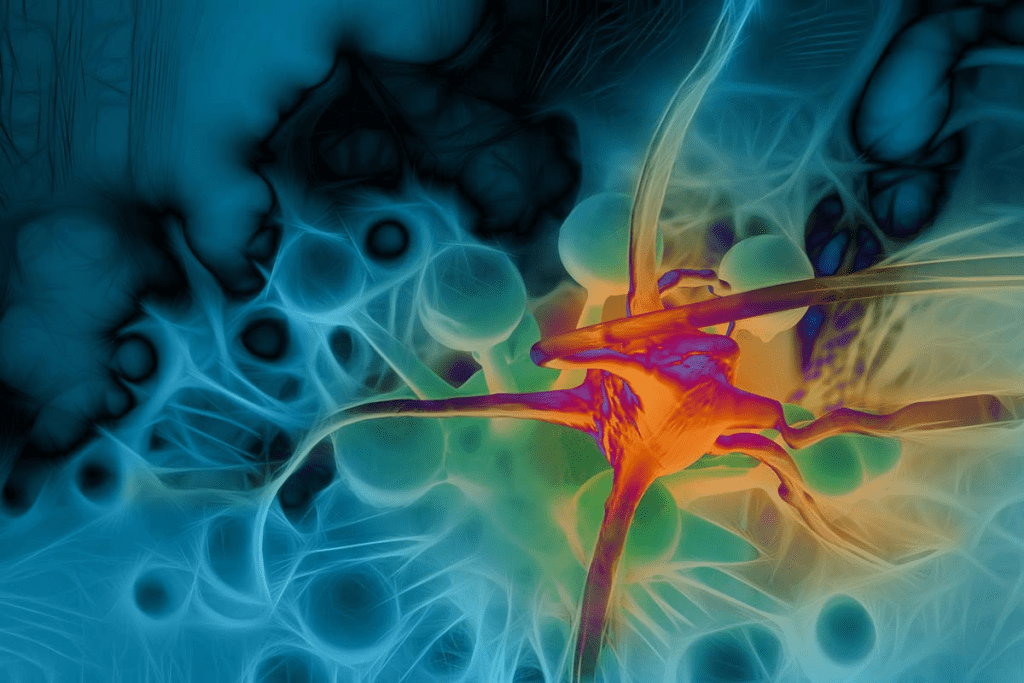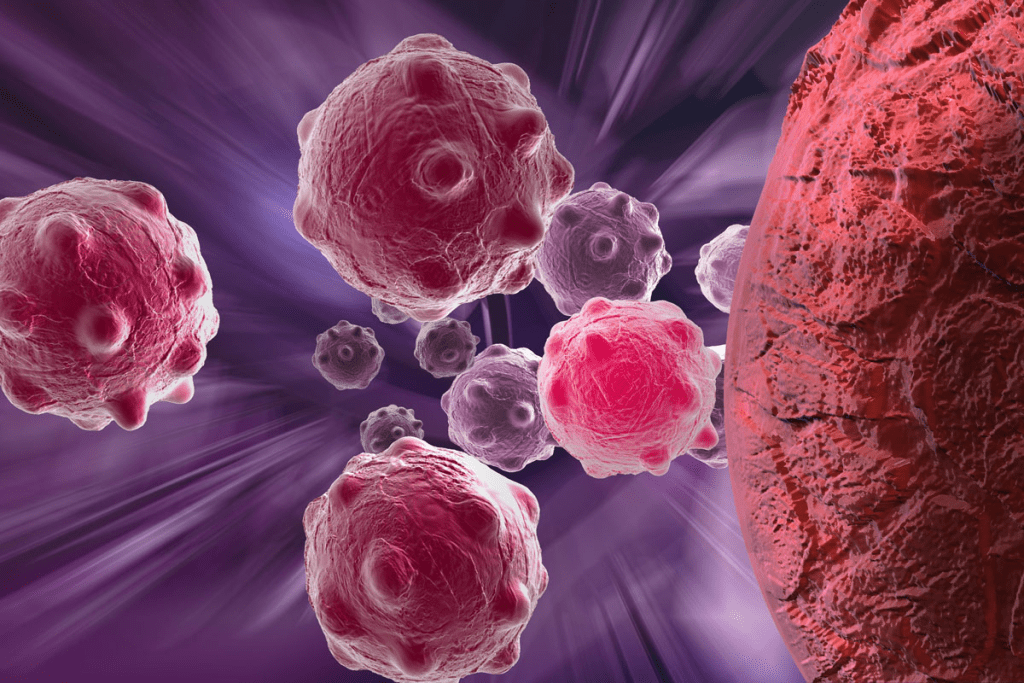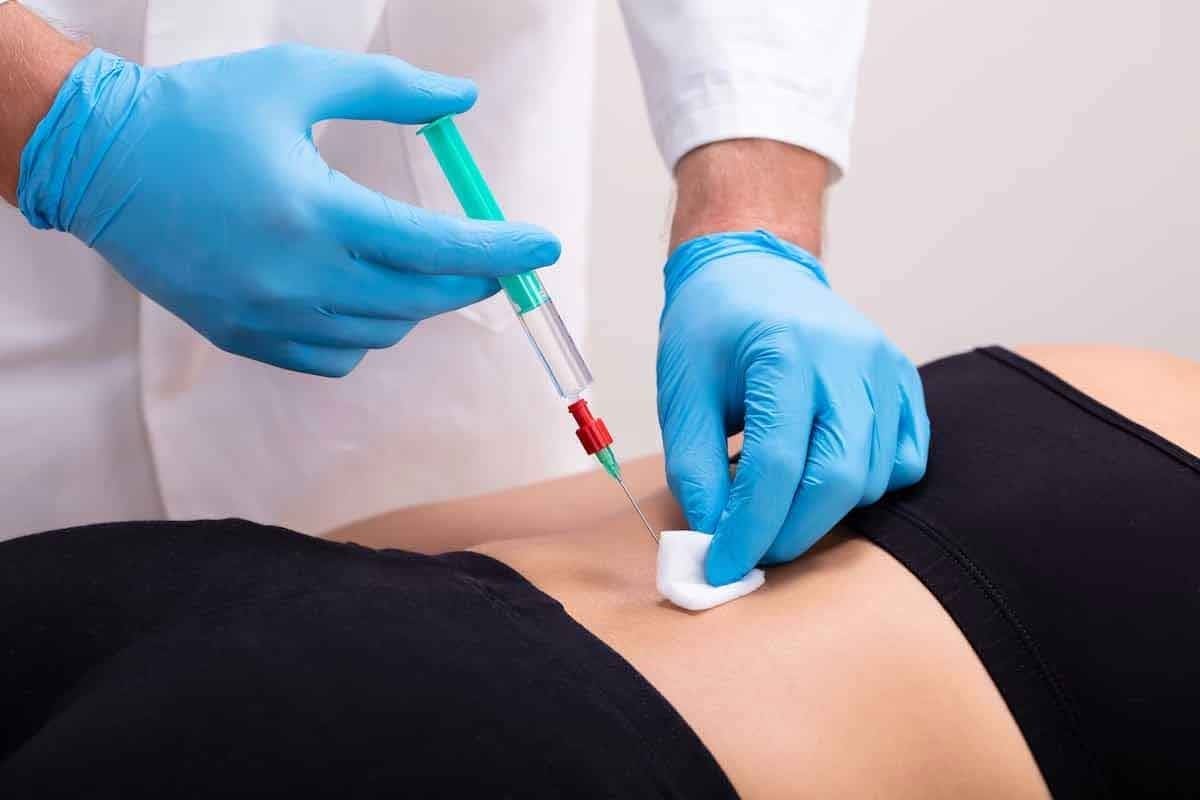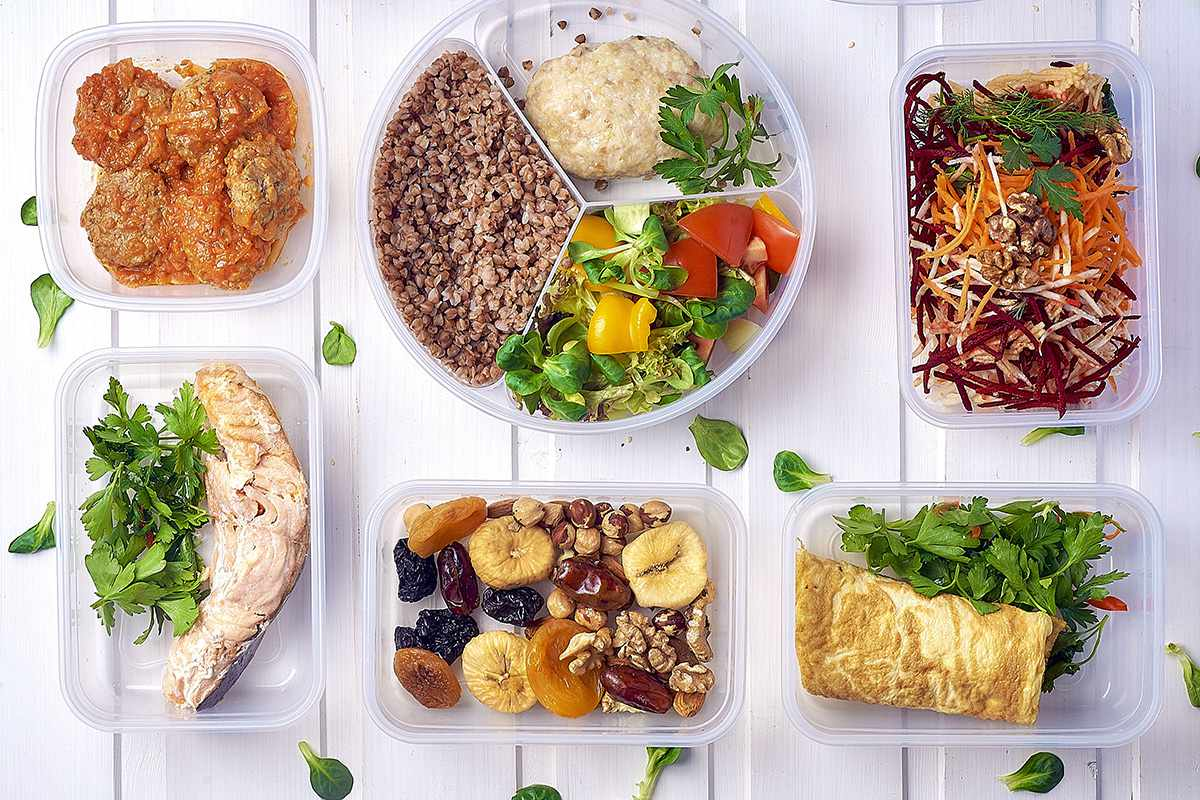Last Updated on November 26, 2025 by Bilal Hasdemir

Prostate cancer is a big problem for men worldwide. Studies on glioblastoma have shown us how to fight cancer, including prostate cancer. Finding out what kills cancer cells in the prostate is vital. Research on natural remedies for prostate cancer and supplements to lower PSA levels is promising, giving us new ways to fight the disease. Keeping the prostate healthy is essential to avoid and manage prostate cancer. This article will look into the latest on avoiding prostate cancer and how supplements can help. We’ll also talk about the importance of prostate health and the 10 best foods for prostate health that support overall wellbeing and prostate function.
Key Takeaways
- Understanding cancer cell biology is key to finding effective prostate cancer treatments.
- Natural remedies and supplements are important in managing prostate cancer.
- Keeping the prostate healthy is vital to prevent and manage the disease.
- Certain supplements can help lower PSA levels, a sign of prostate cancer severity.
- Making lifestyle changes and eating right can also help prostate health.
The Science Behind Prostate Cancer Cell Death

Prostate cancer cell death is a complex process. It involves natural and medical mechanisms. Knowing these is key to finding effective treatments and prevention.
How Cancer Cells Develop in the Prostate
Cancer cells in the prostate start with genetic mutations. These mutations mess up normal cell growth and division. Inflammation and hypoxia are big players in this.
Inflammation leads to reactive oxygen species (ROS) that harm DNA. Hypoxia, or low oxygen, makes genes that help cancer cells grow and survive.
The prostate gland’s environment affects cancer cell growth. Prostaglandin E2 mediated inflammation helps cancer cells grow and avoid the immune system.
Natural and Medical Mechanisms That Kill Cancer Cells

The body naturally fights cancer with immune cells. Some foods and nutrients help keep the prostate healthy and might prevent cancer. For example, foods rich in antioxidants can reduce oxidative stress and lower cancer risk.
Medical treatments like chemotherapy and radiation aim to kill cancer cells. New therapies are being found to better target prostate cancer.
It’s important to understand both natural and medical ways to fight prostate cancer. This helps in creating better prevention and treatment plans.
Understanding Prostate Cancer: Risk Factors and Prevention
Knowing the risk factors for prostate cancer is key to catching it early and preventing it.
Common Risk Factors You Should Know
There are several risk factors for prostate cancer. Some can be changed, while others can’t. Age is a big one, with most cases found in men over 65. Family history also matters, with a higher risk if a father or brother has had it.
Genetic factors, like certain mutations, can raise your risk. Race and ethnicity also play a part, with African American men facing a higher risk and death rate.
| Risk Factor | Description |
| Age | Majority of cases diagnosed in men over 65 |
| Family History | Having a first-degree relative diagnosed with prostate cancer |
| Genetic Mutations | Certain mutations can increase risk |
| Race/Ethnicity | Higher incidence in African American men |
Early Detection and Screening Importance
Screening early is vital to catch prostate cancer when it’s easier to treat. The main tests are the Prostate-Specific Antigen (PSA) test and the Digital Rectal Exam (DRE).
An Expert stresses the importance of early detection and preventive medicine. “Early detection is key to effective treatment and improved survival rates,” he says.
“The best way to prevent prostate cancer is through a combination of awareness of risk factors, early detection, and a healthy lifestyle.”
Eating a diet full of fruits, vegetables, and whole grains helps your prostate. Foods like tomatoes, cruciferous veggies, and omega-3 fatty acids in fish can lower your risk.
The 10 Best Foods for Prostate Health
Some foods are great for prostate health, thanks to science. Eating these foods can help keep your prostate healthy. It might even lower your risk of prostate cancer.
Research-Backed Foods That Fight Cancer Cells
Studies show diet is key in fighting prostate cancer. Foods packed with antioxidants, vitamins, and minerals are super helpful. Here are the top 10 foods for prostate health:
- Tomatoes
- Broccoli
- Berries (such as blueberries and raspberries)
- Green tea
- Fatty fish (like salmon and sardines)
- Nuts and seeds (including pumpkin seeds and sunflower seeds)
- Legumes (such as lentils and chickpeas)
- Whole grains
- Cruciferous vegetables (like cauliflower and kale)
- Onions and garlic
These foods are good for your prostate and overall health. For example, tomatoes are full of lycopene. This antioxidant can help lower prostate cancer risk.
How to Incorporate These Foods Into Your Daily Diet
Adding these foods to your diet is easy and tasty. Here are some tips:
- Add berries to your breakfast cereal or yogurt
- Include a variety of vegetables in your meals, such as broccoli and cauliflower
- Drink green tea as a healthy alternative to sugary beverages
- Snack on nuts and seeds, such as almonds and pumpkin seeds
- Use garlic and onions in your cooking for added flavor and health benefits
By changing your diet, you can help your prostate health. It’s wise to talk to a doctor or dietitian for a diet plan that fits you.
Tomatoes and Lycopene: Nature’s Prostate Protectors
Research shows that lycopene in tomatoes might help lower prostate cancer risk. Lycopene is a strong antioxidant that makes tomatoes red. It’s being studied for its possible anti-cancer effects on the prostate.
The Science Behind Lycopene’s Anti-Cancer Properties
Lycopene might fight cancer by reducing body stress and inflammation. Studies have shown it can lower prostate-specific antigen (PSA) levels. This is a marker for prostate cancer risk. It also protects cells from damage, which could prevent cancer cells from growing.
“The antioxidant activity of lycopene may contribute to its anti-cancer effects,” research says. This is key to understanding how lycopene helps prostate health.
Cooked vs. Raw: Best Ways to Consume Tomatoes
There’s a debate on whether to eat tomatoes cooked or raw. Cooking tomatoes makes lycopene easier for the body to use. But raw tomatoes keep other good nutrients that might be lost when cooked.
- Cooked tomatoes: Lycopene becomes more bioavailable, making it better for fighting cancer.
- Raw tomatoes: Keep important nutrients like vitamin C and potassium.
Eating both cooked and raw tomatoes is a good idea. For example, having a salad with raw tomatoes and then eating cooked tomato sauce. This way, you get the most benefits from lycopene and other nutrients.
Cruciferous Vegetables: Broccoli, Cauliflower, and Kale
Broccoli, cauliflower, and kale are not just good for you; they also fight prostate cancer cells. These veggies belong to the cruciferous family. They are known for their health benefits, helping with prostate health.
Sulforaphane: The Cancer-Fighting Compound
Sulforaphane is a strong compound in these veggies that fights cancer. Research shows it can kill cancer cells and stop tumors from growing. The enzyme myrosinase turns glucoraphanin into sulforaphane when these veggies are chopped or chewed.
To get the most sulforaphane, it’s key to know how to prepare these veggies. Raw or lightly cooked veggies keep more sulforaphane. Avoid overcooking to keep this compound, so steam or sauté briefly.
Preparation Methods That Maximize Benefits
Here are ways to get the most from cruciferous veggies:
- Steaming: Steaming broccoli, cauliflower, or kale for 3-5 minutes helps retain sulforaphane.
- Sautéing: Quickly sautéing these veggies with a bit of olive oil can preserve their nutritional value.
- Raw Consumption: Including raw broccoli, cauliflower, or kale in salads or as crudités with hummus.
A comparison of different cooking methods and their impact on sulforaphane retention is shown in the table below:
| Cooking Method | Sulforaphane Retention |
| Raw | High |
| Steaming (3-5 minutes) | Moderate to High |
| Sautéing (2-3 minutes) | Moderate |
| Boiling (10 minutes) | Low |
| Overcooking | Very Low |
Eating a variety of cruciferous veggies can be tasty and good for your prostate. Knowing about sulforaphane and how to prepare these veggies helps you get the most health benefits.
Berries and Fruits Rich in Cancer-Fighting Antioxidants
Berries and fruits are not just tasty; they’re also full of antioxidants. These compounds help fight cancer cells. They play a big role in keeping us healthy, and scientists are studying their role in preventing cancer.
How Antioxidants Target and Destroy Cancer Cells
Antioxidants fight free radicals, unstable molecules that can harm cells and lead to cancer. Berries like blueberries, raspberries, and strawberries are full of antioxidants. These include anthocyanins and ellagic acid, which help fight cancer.
“The antioxidant power of berries is among the highest of all fruits and veggies,” says research. This makes them key in fighting cancer.
Top Fruits for Prostate Protection and Serving Suggestions
Other fruits also help protect the prostate. For instance, pomegranates have punicalagins. These antioxidants may slow prostate cancer cell growth.
- Blueberries: Enjoy as a snack, add to oatmeal, or blend into a smoothie.
- Pomegranates: Drink pomegranate juice or add the seeds to salads.
- Raspberries: Mix into yogurt or enjoy with a sprinkle of granola.
Eating a variety of these fruits can give you many antioxidants. This supports your health and may lower prostate cancer risk.
Nuts and Seeds: Pumpkin Seeds, Flaxseeds, and Walnuts
Nuts and seeds, like pumpkin seeds, flaxseeds, and walnuts, are good for prostate health. They are full of nutrients that help keep you healthy. Eating them might lower the chance of prostate problems.
Zinc, Omega-3s, and Lignans: The Prostate Health Trio
Pumpkin seeds, flaxseeds, and walnuts are packed with zinc, omega-3s, and lignans. Zinc is key for a healthy prostate. It helps the immune system and is important for cell work. Pumpkin seeds are a great source of zinc.
Omega-3 fatty acids in walnuts and flaxseeds fight inflammation. They’re good for the heart and might help prevent prostate cancer. Lignans in flaxseeds could slow down cancer cell growth.
“Eating nuts and seeds can lower the risk of health problems, including prostate issues, because they are full of nutrients.”
How Much to Eat Daily for Optimal Benefits
To get the most from nuts and seeds, eat them in the right amounts. A small handful a day is a good start. For pumpkin seeds, aim for 1 ounce or a small handful.
| Nut/Seed | Serving Size | Key Nutrient |
| Pumpkin Seeds | 1 oz (28g) | Zinc |
| Flaxseeds | 1 tbsp (15g) | Omega-3s, Lignans |
| Walnuts | 1 oz (28g) | Omega-3s |
Eating different nuts and seeds every day can help your prostate. But, remember to eat a balanced diet. Always talk to a doctor for advice that fits you.
Garlic, Onions, and Other Allium Vegetables
Allium vegetables, like garlic and onions, are packed with compounds that fight cancer naturally. They’ve been a key part of many cuisines for ages. Now, they’re known for their health benefits, including helping with prostate health.
Allicin and Organosulfur Compounds That Target Cancer
The secret to allium vegetables’ cancer-fighting power is their sulfur compounds, like allicin in garlic and various compounds in onions. Allicin can make cancer cells die. Studies show these compounds can stop cancer cells from growing and lower tumor risk.
“The anti-cancer effects of garlic and onions are attributed to their ability to modulate various cellular processes, including cell cycle regulation, apoptosis, and angiogenesis.”
A study in the Journal of Nutrition found eating allium vegetables can lower cancer risk. It points to organosulfur compounds as key in preventing cancer.
Cooking Methods That Preserve Anti-Cancer Properties
Preparation methods can greatly affect the health benefits of allium vegetables. To keep their anti-cancer powers, raw is best. But for cooked fans, minimal heating and lower cooking temperatures help keep the good stuff.
| Cooking Method | Effect on Allicin | Effect on Organosulfur Compounds |
| Raw | Preserved | Preserved |
| Boiling | Reduced | Reduced |
| Steaming | Moderately Preserved | Moderately Preserved |
| Sautéing | Partially Preserved | Partially Preserved |
Eating garlic, onions, and other allium vegetables can add flavor to your meals and support prostate health. Knowing their benefits and how to cook them right can help you make better food choices.
The Dairy Dilemma: Impact of Dairy Products on Prostate Health
Dairy products are common in many diets. But, their effect on prostate health is not clear. Health experts debate if dairy can increase prostate cancer risk.
Research on Dairy Consumption and Prostate Cancer Risk
Studies have looked into dairy and prostate cancer. They focus on what in dairy might affect cancer cells.
Calcium and Prostate Cancer: Some studies link high calcium in dairy to more prostate cancer. Calcium might change how vitamin D works, affecting cell growth.
| Dairy Product | Calcium Content (per serving) | Potential Impact on Prostate Health |
| Milk | 300 mg | High calcium intake may increase prostate cancer risk |
| Cheese | 200-400 mg | Varied impact due to different calcium and fat content |
| Yogurt | 200-300 mg | May have protective effects due to probiotics |
Healthier Alternatives to Consider
If you’re worried about dairy and prostate health, there are other options:
- Non-dairy milk: Almond milk, soy milk, and oat milk are good dairy milk substitutes.
- Fortified plant-based products: Plant-based yogurts and cheeses with calcium are good choices.
- Leafy greens: Kale and broccoli are full of calcium and other health benefits.
Knowing how dairy might affect prostate health and trying healthier options can help. This way, you can make better diet choices.
Beneficial Beverages: Green Tea, Coffee, and Pomegranate Juice
Beverages like green tea and coffee are getting more attention for prostate health. They contain antioxidants and polyphenols. These compounds have been studied for their anti-cancer properties.
Polyphenols and Other Compounds That Fight Cancer
Green tea is known for its high levels of catechins, a type of polyphenol. Epidigallocatechin gallate (EGCG), a key part of green tea, can stop cancer cells from growing.
- Green Tea: Rich in catechins, which may help in reducing the risk of prostate cancer.
- Coffee: Contains antioxidants and has been associated with a lower risk of prostate cancer in some studies.
- Pomegranate Juice: High in ellagic acid and other antioxidants that may slow down the progression of prostate cancer.
Drinks to Avoid for Better Prostate Health
Some drinks are good for you, but others are not. It’s best to limit or avoid:
- Sugary Drinks: Too much sugar can lead to health problems.
- Alcohol: Drinking too much can harm your health, including your prostate.
- Caffeine-Overloaded Beverages: While some coffee is okay, too much caffeine can cause health issues.
Eating well and drinking the right beverages can help your prostate health. A healthy lifestyle is key.
Supplements and Nutrients With Possible Anti-Cancer Effects
Looking into prostate health means understanding supplements’ effects. Some nutrients and supplements might help support prostate health and lower cancer risk.
Vitamin D, Selenium, and Zinc: The Evidence
Research shows some nutrients could help prevent prostate cancer. Vitamin D is one, helping control cells and prevent cancer. Studies link higher vitamin D levels with lower prostate cancer risk.
Selenium is another nutrient with anti-cancer properties. It’s key for the body’s antioxidant defenses, protecting cells from harm.
Zinc is essential for prostate health. Men with prostate cancer often have less zinc. Getting enough zinc through diet or supplements may help prostate health.
| Nutrient | Potential Benefits | Food Sources |
| Vitamin D | May reduce prostate cancer risk | Fatty fish, fortified dairy products |
| Selenium | Antioxidant properties | Brazil nuts, fish, turkey |
| Zinc | Supports prostate health | Oysters, beef, chicken |
Herbal Supplements: Saw Palmetto, Pygeum, and Others
Herbal supplements like saw palmetto are also being studied. Traditionally used for urinary health, it may help with prostate issues.
Pygeum comes from the African cherry tree bark. It’s used for urinary problems linked to an enlarged prostate. Its effect on prostate cancer is being studied, but it may help overall prostate health.
Safety Considerations and Talking With Your Doctor
Supplements can be beneficial but need caution. Always talk to a healthcare provider before starting any supplements, even if you’re already treating prostate cancer or other conditions.
It’s important to discuss supplement and medication interactions with your doctor. This ensures safe and effective use. Adjusting supplement intake based on professional advice can help maximize benefits and minimize risks.
Lifestyle Changes That Support Prostate Health
Making smart lifestyle choices can greatly help your prostate health. By adding healthy habits to your daily routine, you can lower your risk of prostate problems. This supports your overall health too.
Exercise and Physical Activity Recommendations
Regular exercise is key for a healthy lifestyle that helps your prostate. Physical activity can lower your risk of prostate cancer and boost your health. The American Cancer Society suggests doing at least 150 minutes of moderate or 75 minutes of vigorous activity each week.
Brisk walking, biking, or swimming are good for moderate activity. Running, jumping rope, or boxing are examples of vigorous activity. Mixing aerobic, strength, and flexibility exercises offers the best benefits.
Stress Management, Sleep, and Weight Control
Managing stress is vital for prostate health. Chronic stress can weaken your immune system, making it harder to fight diseases like cancer. Meditation, yoga, and deep breathing can help lower stress.
Getting enough sleep is also key. Aim for 7-9 hours each night to help regulate hormones and support health. Poor sleep quality can lead to health problems, including a higher cancer risk.
Keeping a healthy weight is also important. Excess fat increases the risk of prostate cancer and other health issues. Eating a balanced diet and staying active can help you maintain a healthy weight.
Avoiding Harmful Substances and Environmental Toxins
Staying away from harmful substances and toxins is critical for prostate health. Some chemicals in pesticides, heavy metals, and industrial pollutants raise the risk of prostate cancer.
To reduce exposure, you can:
- Choose organic produce to lower pesticide intake.
- Avoid smoking and secondhand smoke, as tobacco is full of harmful chemicals.
- Wear protective gear when working with chemicals or in toxic environments.
- Opt for personal care products and household cleaners without harsh chemicals.
By adopting these lifestyle changes, you can greatly support your prostate health. This can also lower your risk of prostate-related problems.
Conclusion: Building Your Comprehensive Prostate Cancer Prevention Plan
Preventing prostate cancer starts with a complete approach to prostate health. This means making dietary changes, lifestyle adjustments, and knowing your risk factors.
Eating foods that fight cancer cells, like tomatoes and berries, is a good start. Regular exercise, managing stress, and avoiding harmful substances also help your prostate health.
Don’t forget about regular screenings and learning about natural cures for prostate cancer. Being informed and proactive can lower your risk of prostate cancer.
Creating a plan that covers diet, lifestyle, and awareness is essential. By making smart choices, you can protect your prostate health and lower your risk of prostate cancer.
FAQ
What are the best foods to eat to prevent prostate cancer?
Eating foods high in antioxidants is key. Tomatoes, berries, and veggies like broccoli and cauliflower are great. Nuts and seeds, like pumpkin seeds and walnuts, are also good for your prostate.
How can lycopene help with prostate cancer prevention?
Lycopene in tomatoes has anti-cancer properties. It helps prevent prostate cancer. Eating cooked or raw tomatoes is good, as lycopene is easier to absorb when cooked.
Are dairy products bad for prostate health?
High dairy intake might raise prostate cancer risk. Opt for plant-based milk and calcium-rich foods instead.
Can supplements help prevent prostate cancer?
Supplements like vitamin D, selenium, and zinc might have anti-cancer effects. But, always talk to a doctor before taking any supplements.
How can lifestyle changes support prostate health?
Regular exercise, managing stress, getting enough sleep, and keeping a healthy weight are all good. Avoiding toxins and harmful substances is also important.
Are pumpkin seeds beneficial for prostate health?
Yes, pumpkin seeds are full of zinc, which is good for your prostate. Eating a handful of pumpkin seeds every day can help.
Can garlic and onions help prevent prostate cancer?
Garlic and onions have compounds that might fight cancer cells. They could help prevent prostate cancer.
What are the benefits of green tea for prostate health?
Green tea’s polyphenols may fight cancer cells and support your prostate. Drinking green tea regularly is beneficial.
How can I incorporate cancer-fighting foods into my diet?
Add fruits, veggies, nuts, and seeds to your meals. Meal planning and prep can make healthy eating easier.
Are there any specific drinks that can help support prostate health?
Green tea, coffee, and pomegranate juice are good for your prostate. Avoid sugary and artificially flavored drinks.
References
Wang, L., et al. (2024). PSMA-targeted therapy: From molecular mechanisms to clinical applications in metastatic castration-resistant prostate cancer. European Journal of Nuclear Medicine and Molecular Imaging.






